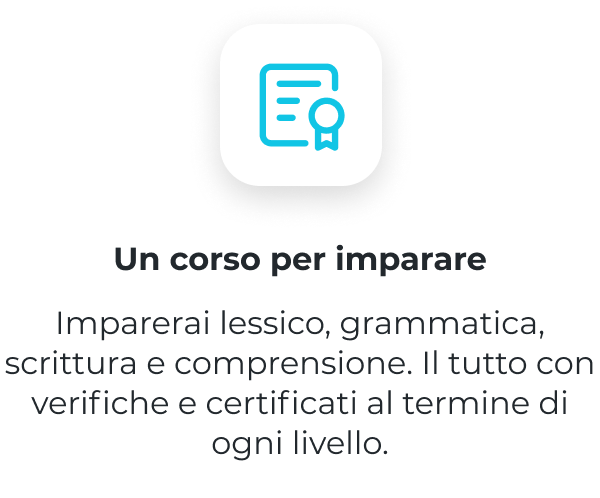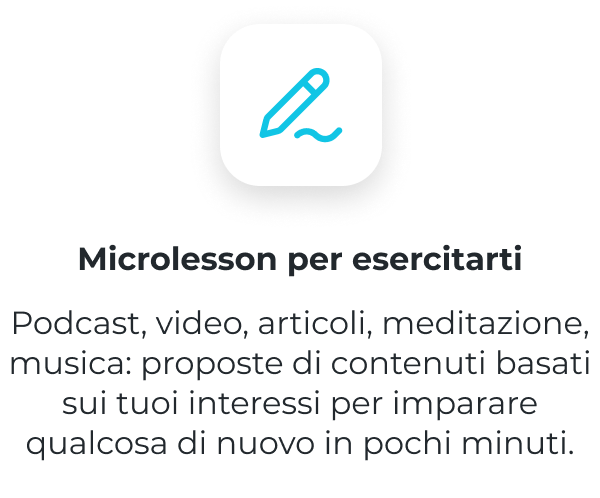La differenza tra can, could, may, might
Hai difficoltà a distinguere tra i verbi modali? Scopri come usarli correttamente con questo articolo. Ricorda che offriamo anche molte risorse gratuite ai nostri oltre 30 milioni di studenti.
È normale che ti sembri difficile distinguere gli usi dei verbi modali. Capire la differenza tra can e may può essere fonte di confusione. Alcune persone hanno anche problemi a sapere quando si usano may e can.
Si hanno anche difficoltà a capire le differenze tra can, could, may o might. Non preoccuparti di ciò, anche gli stessi madrelingua hanno difficoltà a capire la differenza. Ma ci sono dei trucchi per farlo. Te ne parliamo qui.
Differenza tra may e might
La differenza fondamentale è il grado di certezza tra i due. Mentre con may è più probabile, might indica meno possibilità che succeda qualcosa.
Questa equivalenza in italiano può aiutarti:
May: Forse
Might: Potrebbe essere
May e might servono anche per chiedere il permesso, però might viene usato di meno.
Esempi:
Brian may go to lunch with them.(Forse Brian mangerà con loro.)
He might call me this week. (Potrebbe chiamarmi questa settimana.)
May I have a pen? (Mi dai una penna?)
Agent, might I ask you a question? (Agente, potrei farle una domanda?)
Differenza tra can e could
Can di solito parla di capacità e could può significare il passato di can. Tuttavia, non solo differiscono per il tempo verbale.
Can e could possono essere usati per chiedere il permesso, però can è molto più colloquiale e could più formale ed educato.
Esempi:
Can I please have some tea? (Posso avere del tè, per favore?)
Could you please show me another model? (Potrebbe mostrarmi un altro modello?)
Can you help me, please? (Mi può aiutare per favore?)
Could you please open the door? (Potrebbe aprire la porta per favore?)
Unisciti all’accademia digitale d’inglese più
grande del mondo e impara l’inglese
Come si usano could/might/may/must
| Must It must have been very scary. A war is terrible. (Deve essere stato terrificante. Una guerra è terribile.) | Molto possibile |
| May, might, could Today may rain. (Oggi potrebbe piovere.) This question might be impertinent.(Questa domanda potrebbe essere impertinente.) That accident could have been a tragedy. (Quell’incidente avrebbe potuto essere una tragedia.) | Abbastanza possibile |
| Can’t / Could’t John couldn’t have done this. (John non avrebbe potuto farlo.) Even if you try, you can’t hurt me. (Anche se ci provi, non puoi farmi del male.) | Quasi impossibile |
Esercizi
1. I have heard the phone. It _______ be my husband or it ________ be my mother.
Can’t/ must
Could/ can’t
May/ could
2. The meeting_____ be canceled if the project doesn’t start.
May
Can’t
Must
3. The sun is shining a lot. It ____________be hot out there!
Must
Could
May
4. Brian _________ believes Vicky has eaten his sándwich again!
Must
Can’t
May
5. Mathew can’t find his computer. Somebody _________ has stolen it.
Can’t
Might
Must
6. No light. Lucy _______ be at home.
Must
Might
Can’t
7. Bree ___________ have myopia. She doesn’t see road signs well.
Might
Must
Can’t
8. Hector is unable to view the video on YouTube. It _________ be a problem with the WiFi.
Can
Might
Must
9. Rose is late. She ________ miss the start of the lesson.
Can’t
Could
Must
10. I’m not sure about the animal in the ad. It ______ be a wolf.
Can’t
Could
Must
Soluzioni:
- May/ could
- May
- Must
- May
- Must
- Can’t
- Must
- Must
- Could
- Could
Altri link utili


























